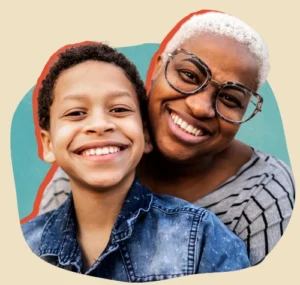Se habla español.
Interpreters available for other languages.
410-706-2781
The ROAR Center is a recognized Center at the University of Maryland, Baltimore
When you come to us for help, we listen and build a relationship with you based on trust and understanding that supports your way forward. All of our services are free.
No matter how you were involved in the crime, you’re worthy of respect and care. We listen without judgment and treat you with dignity.
We can give you choices and support, but it’s up to you to decide what to do. You don’t have to follow our advice. We take your lead and won’t make you do anything.
You’re more than the painful things that have happened to you. You’re a complete person with feelings, goals, strengths, and challenges in every part of your life.
Se habla Español. ROAR has a native Spanish speaker on staff and access to interpreters for other languages.
We can help you whether you report the crime to the police or not. If you do want to work with them, we can help you understand your legal rights and options.
We can help you regardless of your immigration status. Our lawyers can help you with immigration concerns as part of our other legal services.
I felt so lost when I first came to ROAR. Everywhere I went for some help they turned me away. ROAR listened to me—from that first call to when everything I needed was resolved. I would refer anybody to ROAR.
Manuela A.
Interpreters are available for other languages. Please ask!
Going through a painful event such as a crime can affect how your mind works, what you need to feel safe, and how you react to things around you. Sometimes, when people trying to help don’t understand how this trauma changes you, they might unintentionally make things worse.
At ROAR, all our services are “trauma-informed.” Even though everyone’s experience is unique, this means we understand what survivors often need, think, and feel after a crime. We know the right things to do—and what not to do—to help survivors heal from different types of traumatic experiences. We offer all our services in one place, so you don’t have to keep talking about painful memories over and over again.
How do our services work together? Here are some examples. Your situation may be similar or different.

A 24-year-old Black man has been admitted to the hospital after being treated at the Trauma Center after being shot three times in the chest and arms. When he wakes up he meets the violence interventionist employed by the hospital. He has lots of questions: Where is his cell phone, wallet, house keys, and cash that he had on him when he got shot? What will his employer do when they find out he won’t be coming back to work right away? How will he pay for all this medical treatment? How will he ever go back to his apartment when he was shot right outside it?
A 19-year old white woman is living on the streets of Baltimore City. She has been using heroin for the past couple of years and her family asked her to leave when her use got heavy. She has been living with her boyfriend in a tent close to the University of Maryland, Baltimore campus. She recently discovered she was pregnant and her boyfriend got really upset. He started screaming and yelling which he had done before, but then hit her and threw her to the ground and started kicking her in the stomach. He had never gotten violent before. She’s not sure what to do. She wants him to go to jail but she doesn’t trust the police, since they hassle her all the time about asking for money and sleeping outside. She’s also not sure how to be safe, maybe get clean, and what about the pregnancy? There’s so much to figure out.
A single mom with three kids lost her oldest son to gun violence. He was shot just two blocks from their home. She’s afraid to leave the house because some people in the neighborhood think she’s talking too much to the police about what happened. She’s been missing work 2-3 days every week. Her boss says she used up all her time off and she might lose her job. Her other children are afraid to go to school and their grades have dropped. Now the girl’s teacher says she might have to repeat first grade. The mom’s 12-year-old son goes to school about 4 days a week.
A 54-year-old woman was sexually assaulted by her boss at the hotel where she’s worked for the past 13 years. He’d been saying mean and upsetting things to her for years, but this time he pushed her onto a bed and raped her. Since then, she hasn’t been able to leave her house. She’s too scared to tell her husband what happened. Her kids are really worried, but she just keeps saying she’s not feeling well.
Check out our free self-help resources available to everyone.
for upcoming clinic dates and locations